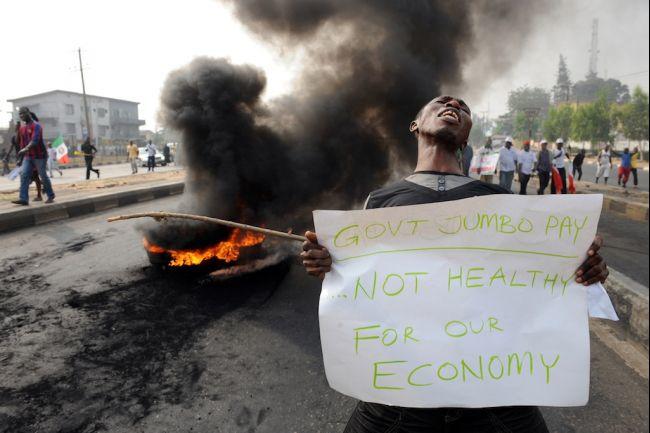
NEW AFRICA PRIORITIES

For executives at the African oil industry's annual get together last week, the traditional party atmosphere proved extremely shortlived.
No sooner had they checked into their Cape Town hotels than they began to receive bad news.
In rapid succession, the chairman of Tanzania's state-owned oil company was detained in police custody over a contracts row, Total of France suffered a drillship breakdown that will delay offshore exploration in South Africa by a year; ConocoPhillips took a $140m charge on a dry well in Angola, and Tuareg rebels stormed the El Sharara oilfield in Libya, co-owned by Repsol of Spain.
All of this as oil prices fell to a four-year low.
If some of those attending Africa Oil Week felt the party was over, the equity market offered little reason for cheer: explorers' share prices, having once been buoyed by investor demand for exposure to the continent, fell further – to almost half their level back in January.
London-listed Tullow Oil – which has exploration projects off Ghana, French Guiana and Mauritania, as well as existing discoveries in Uganda and Kenya – has now suffered a 40 per cent drop in its share price this year, after a 33 per cent fall in 2013. Similarly, shares in Ophir Energy , a pioneer of the natural gas in east Africa, are down nearly 38 per cent this year.
However, this combination of collapsing share prices, lower oil prices, and exploration setbacks has succeeded in bringing executives and government officials together in one respect: they now unanimously agree that they must change their priorities in Africa.
"Focus will have to be on projects with a clear path to value creation and, in this market, that has to be development, rather than exploration," says Dragan Trajkov, oil analyst at brokers Oriel Securities in London.
For an industry that has been focused on exploration in remote and difficult locations – such Lake Albert in Uganda and offshore Mozambique – this will represent a significant shift in operations.
Aidan Heavey, chief executive of London-listed Tullow, suggests a move away from exploration will have important consequences for the sector. "I think you will see fewer discoveries in Africa," he says. "Shareholders want dividends – high risk exploration can be postponed for a few years".
Such a shift would reverberate beyond the continent, too, as Africa has contributed significantly to the growth in oil and gas reserve since 2010. Last year, six of the top 10 global oil and gas discoveries by size were made in Africa, with more than 500 companies now exploring in the region, according consultants PwC.
Some executives even warn that development projects, particularly costly deepwater offshore oilfields, could be shelved – or postponed. Danish shipping and oil group AP Møller-Maersk has already put its Chissonga project in Angola under review because of lower oil prices.
No one is predicting an end to African oil exploration. Big oil groups still plan to spend billions of dollars in the continent over the next decade developing the recently discovered reserves, executives say. Moreover, companies have already hired rigs and drillships for next year and, in many cases, for 2016, as well. Any shift away from exploration will therefore take time. As Irene Nafuna Muloni, oil minister of Uganda, points out: "Africa is endowed with oil. We still have the opportunities in spite of the lower [oil] prices".
Nevertheless, after last week's Cape Town meetings, executives believe most companies will cut their African exploration budgets.
On Wednesday, Tullow – which has been behind some of the most important discoveries in the region, including the landmark Jubilee field in Ghana – said it would cut its budget for next year to $300m, down from $800m this year and $1bn in 2013.
Analysts say Tullow's move will set the pace for the sector, particularly as many those companies have seen their share prices hit. In addition to Tullow and Ophir, Kosmos Energy – a US group with production in Ghana and exploration in western Sahara, Mauritania and Senegal – has lost nearly 8 per cent of its market value this year, after a 15 per cent drop in 2013.
It is a similar story in the nascent Nigerian oil sector. Shares in Johannesburg listed Oando are down 14 per cent this year. London-listed Seplat has suffered a 7.5 per cent share price fall after floating in Lagos. But Afren , rocked by a series of scandals, has lost most: its shares are down nearly 55 per cent since January.
However, Africa-focused energy companies must consider more than just shareholder concerns. They face an additional challenge in convincing their host governments of the merits of spending cuts.
Oil and gas discoveries in countries such as Uganda, Ghana, Tanzania and Mozambique have created expectations that a wave of petrodollars will flow into government coffers.
As oil prices weaken, disappointed governments may attempt to increase taxation to compensate. As Oboe Idornigie, Africa senior analyst at consultants Wood Mackenzie, warns: "We have already witnessed royalty increases".
ft.com





